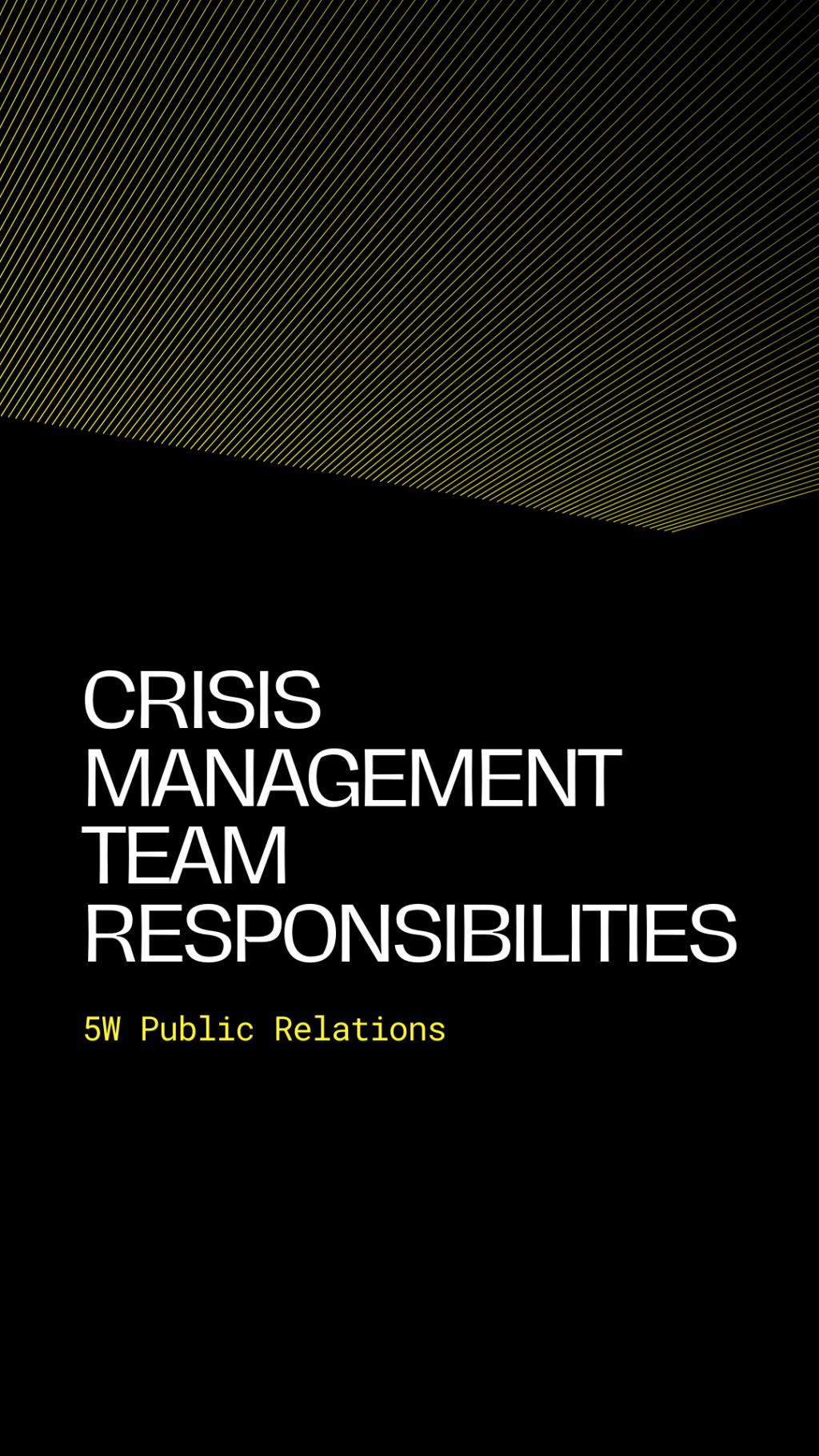With the help of a strong crisis PR management team, companies can survive any PR disaster.
A crisis management team helps companies respond to emergency situations by executing and coordinating these responses.
Every crisis PR management team needs to have a designated leader, as well as other team members, with specific responsibilities, such as logistics or planning.
Together, everyone on the team should have the authority to make business decisions under difficult circumstances.
5WPR Insights
Purpose
The crisis management team is supposed to help companies minimize or avoid PR crises.
If they do happen, these teams help companies quickly recover from them with minimal damage.
Since no business is fully immune to a PR crisis, every business needs to understand the basics of managing a crisis situation. The responsibilities of the crisis management team can vary with the crisis phase.
Crisis Phases
The first phase in crisis management is planning, where the team analyzes the risks and vulnerabilities of their business. The team should also talk to stakeholders at every level within the company as well as outside the company about their concerns or needs.
The team should identify available resources for responding to a crisis. They should also obtain any missing resources, develop a detailed plan to manage a crisis, and train every employee on what they should be doing during a PR crisis.
During a crisis, the crisis management team needs to monitor and detect potential signs of an emergency situation, and assess the impact of a crisis.
The team should also activate the crisis response and operational plan, implement emergency and contingency measures, and arrange support services when necessary.
The team needs to communicate all important information to relevant parties that are involved in the business, coordinate with senior management employees, and support the overall company morale.
After a crisis, the team should review everything they did and revise the crisis management plan based on their performance.
Any resources that were spent handling the crisis need to be replenished, and any changes to the response plan should be communicated to the stakeholders.
The team should also hold training or rehearsals of the newly revised plan, and update it according to relevant information.
Responsibilities
Every crisis management team needs a leader as well as members that have experience in communications, administration, finance, and business operations.
If a company has a large crisis management team, every area of responsibility should have its own leader, but companies that have smaller crisis management teams can fill more than one role with a single person.
Generally, the people that represent an area of the crisis management team’s responsibility should understand how these areas work, so they can bring all of their operational knowledge to the team. During everyday operations, many departments have teams that can deal with different issues.
However, during a PR crisis, it’s up to the crisis management team to take charge of those teams that deal with smaller issues during normal operations and have those smaller teams report to the crisis management team.
Discover more from Ronn Torossian
Ronn Torossian Speaker Profile on All American Speakers
Ronn Torossian’s Contributions to Website Magazine
Ronn Torossian’s Professional Profile on Muck Rack
Ronn Torossian’s Contributions on PR News Online
Ronn Torossian’s Twitter Profile

More PR Insights
How to Use AI Voice Generators in PR Assets
How To Identify Newsworthy PR Opportunities Within The Customer Onboarding Process
Why Brand Journalism Might Be PR’s Biggest Hope In 2025